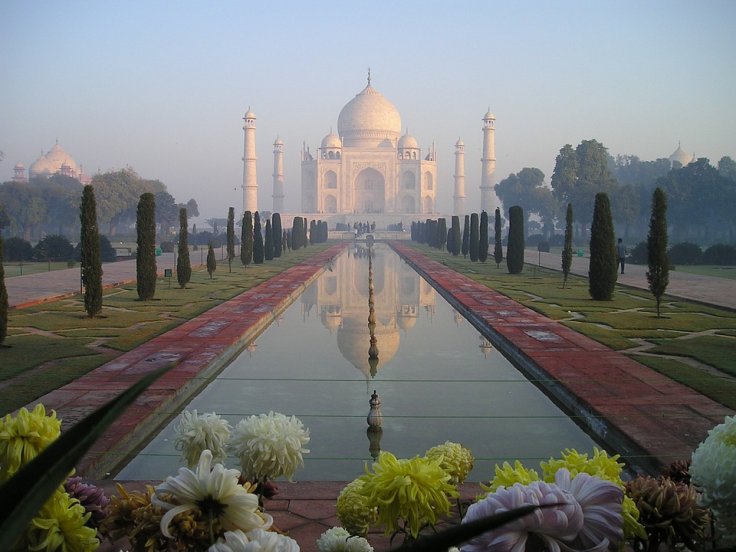
Preservation of 400-year-old love monument Taj Mahal is passe but the focus should be on the next 400 years, said India's apex court onFriday.
The Supreme Court has directed the Uttar Pradesh government to prepare a comprehensive vision document for the protection and preservation of Taj Mahal and the environment around it so that historic monument could be there for another 400 years and not just for a generation.
"In our opinion, a detailed and comprehensive vision document and plan with a futuristic perspective which can protect and preserve the Taj and its environs and indeed the Taj Trapezium Zone spread over six districts of Uttar Pradesh and district Bharatput in Rajasthan for a few hundred years at least should be prepared," said the bench of Justice Madan B. Lokur and Justice Deepak Gupta.
"This exercise will require expertise from all stake holders including those concerned with cultural heritage, historical heritage, environment and wild life, etc. etc. and, of course, prevention of pollution", the court said in its order.
The bench termed as "ad hoc" the measures spelt out by the state government that are being taken or will be taken for the protection of the Taj Mahal and a clean environment around it.
The state government said that it had asked the School of Planning and Architecture to prepare the plan, but the court said this plan should involve experts in the field of culture, history, archaeology and other spheres.
"How can you keep out the people the country (in the preparation of the plan). This (plan making) can't be closed door affair," Justice Lokur said as Additional Solicitor General Tushar Mehta urged the bench that instead of experts, the court could ask for consultation with petitioner M.C. Mehta and advocate A.D.N.Rao, noting that that petitioner Mehta has 33 years experience in dealing with environment matters.
This monument has to be protected not for just one generation but for 300 to 400 years to come, the bench said.
As ASG Mehta told the court that November 27 communication by the Uttar Pradesh government says that the School of Planning and Architecture would prepare the plan in consultation with the stake holder, Justice Lokur quipped if stakeholder meant the "commissioner of Agra Division" and told him the court doesn't want a bureaucratic plan but a holistic plan addressing the diverse aspects relating to the monument's preservation and protection and the environment around it.
"They must consult the experts. There is no shortage of them. There is no hurry. No need for a bureaucratic response. We have seen what it (bureaucratic response) means from time to time," the bench said.
"You can have an interim report. Don't be in hurry. You are looking for something that has to last for 400 years," said Justice Lokur.
Holding that "we have to look at it in a pragmatic way", he said: "What is required is a larger look at the picture. Earlier we had five year plans with some objectives and goals."
Referring to the Narendra Modi government's goal of a new India by 2022, Justice Lokur said: "You can't have a new India with your hands in pocket...."
Pointing out that 70 per cent of the trees being planted were perishing, the court said: "When you don't have a plan and take ad hoc measures, then such things happen."
Giving liberty to the School of Planning and Architecture to approach it for any clarification, the court directed the listing of the matter after eight weeks.(IANS)









